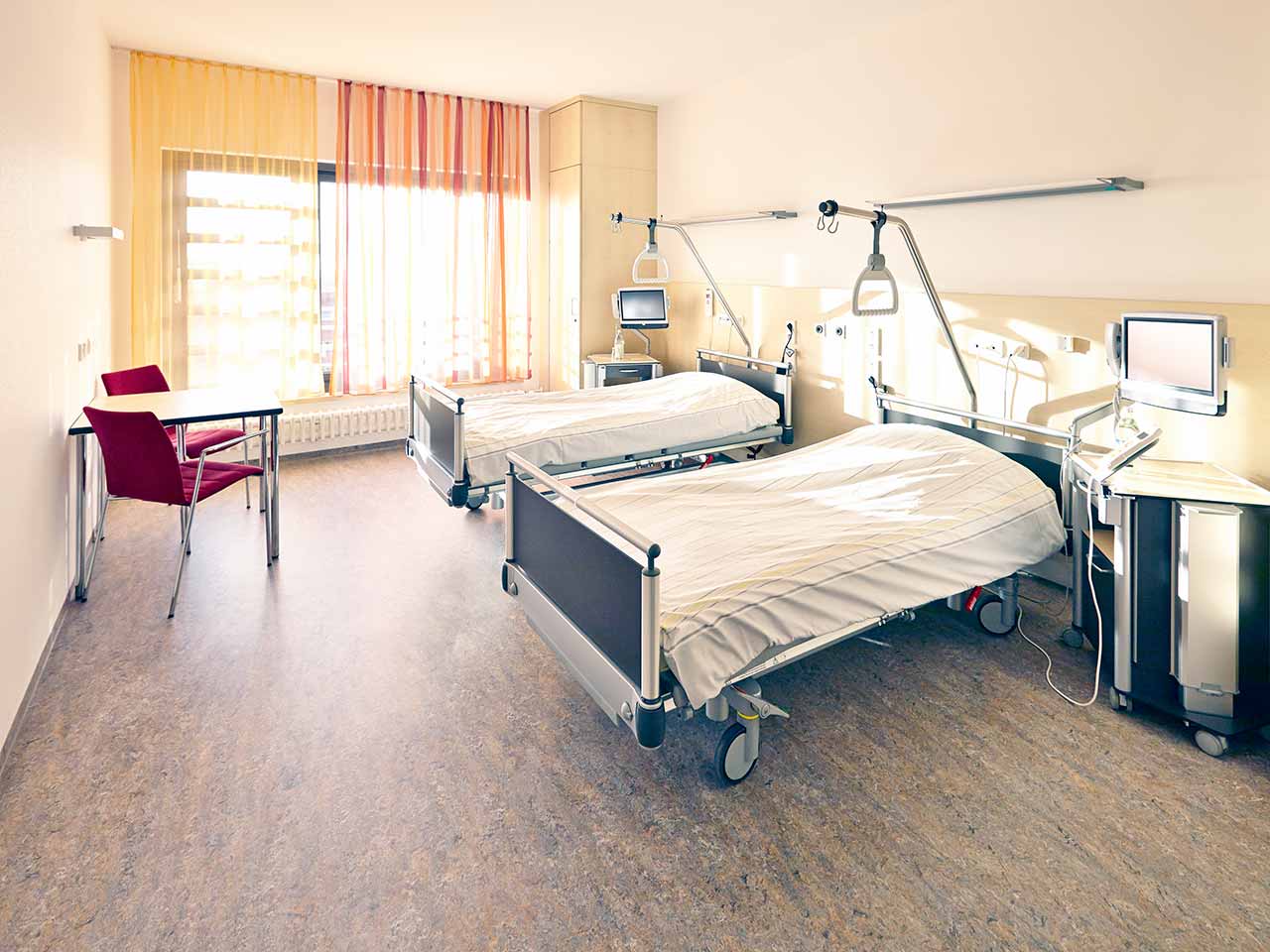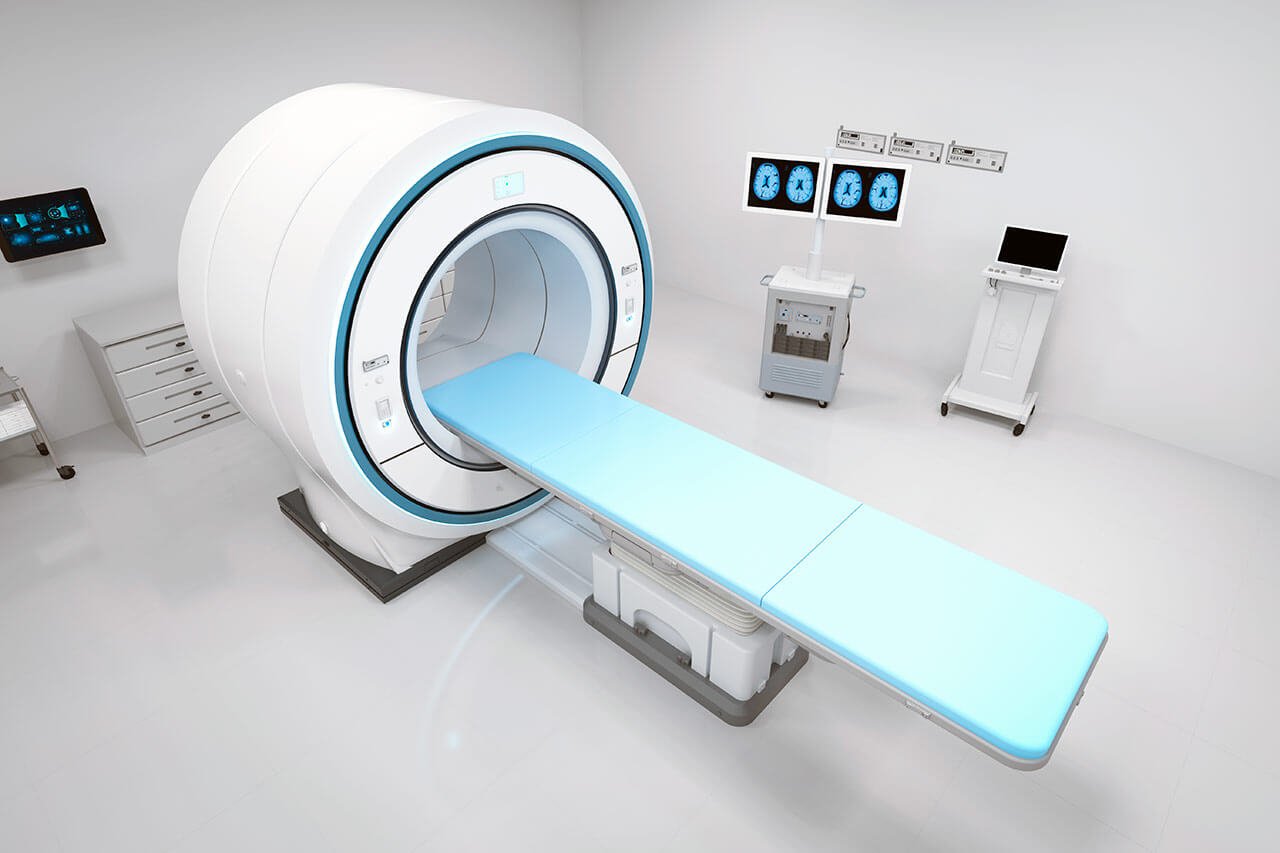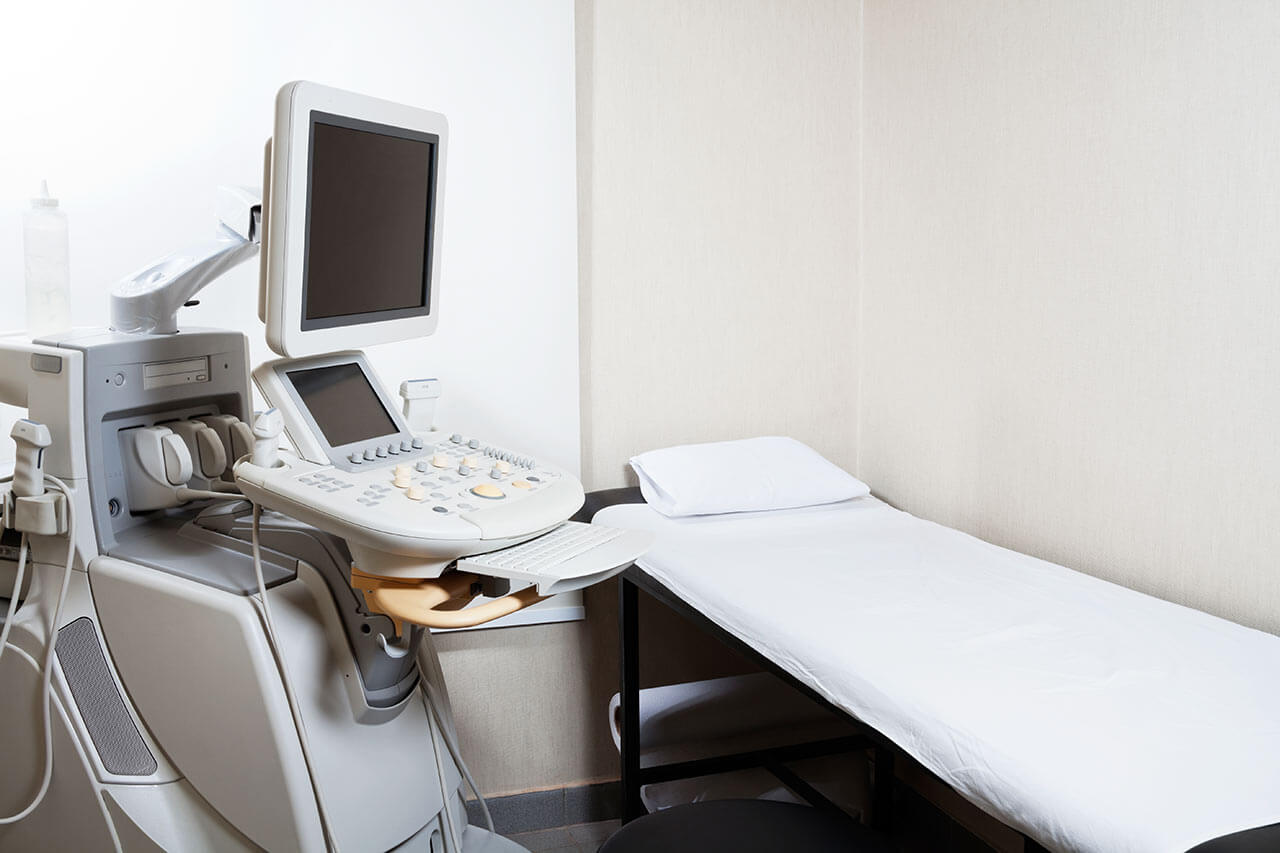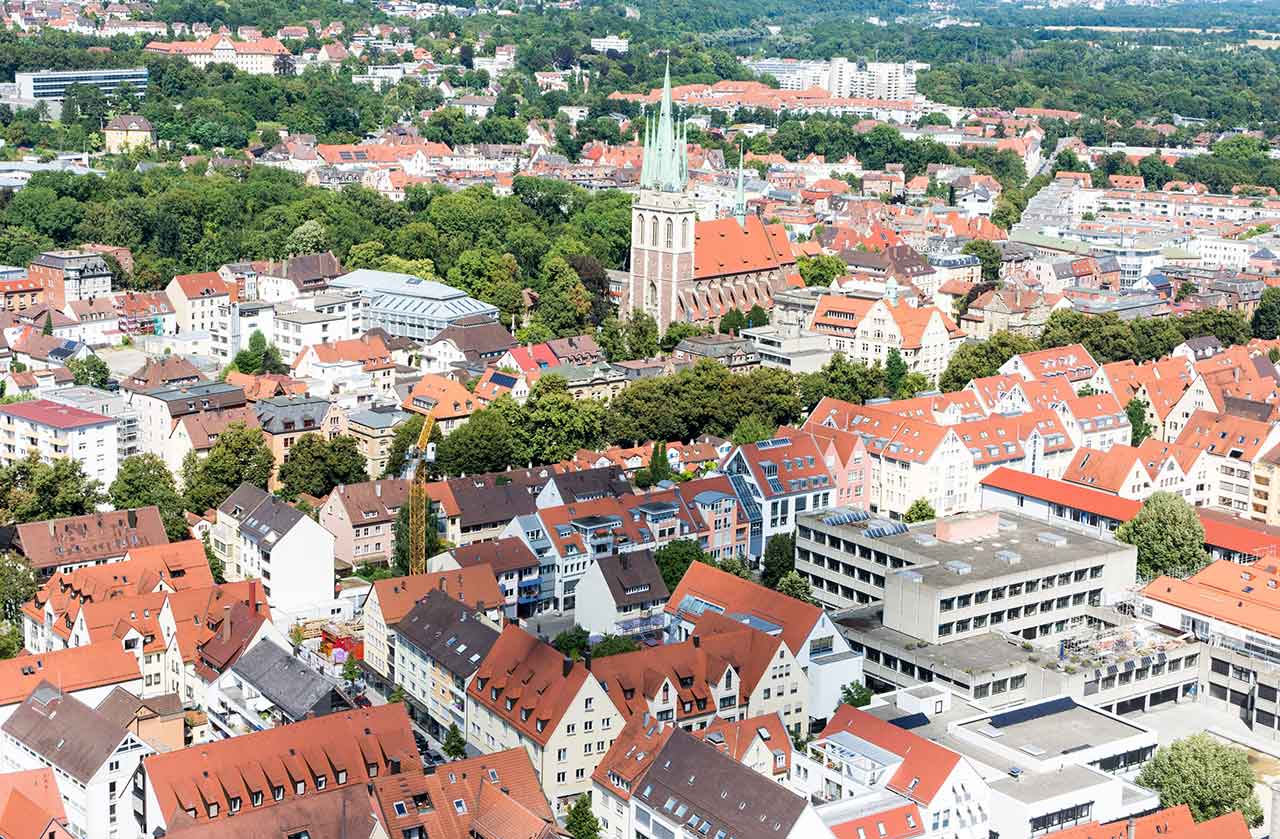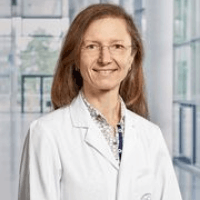
The program includes:
- Initial presentation in the clinic
- clinical history taking
- review of medical records
- physical examination
- neurological examination
- CT/MRI of the brain
(if indicated clinically, additional cost is 650/1200 €) - nursing services
- tumor board: consultation of
oncologist, radiologist, surgeon - treatment by chief physician and all leading experts
- explanation of individual treatment plan
Required documents
- Medical records
- Brain MRI/CT scan (not older than 3 months)
- Biopsy results (if available)
Service
You may also book:
 BookingHealth Price from:
BookingHealth Price from:
About the department
The Department of Pediatric Neurosurgery at the University Hospital Ulm offers all types of modern treatment for diseases of the nervous system in young patients. Doctors at the medical facility specialize in surgery for brain and spinal cord tumors, spina bifida, traumatic brain injuries, epilepsy, hydrocephalus, vascular malformations, craniosynostosis, spasticity, and other pathologies. Pediatric neurosurgeons use state-of-the-art equipment in their work, including neuronavigation devices, neuromonitoring systems, intraoperative imaging, and operating microscopes. The department's operating rooms are adapted for minimally invasive and endoscopic interventions. During such operations, the pathological focus is approached through miniature incisions in the skin and soft tissues. Thanks to this, the child does not experience any pain and recovers quickly in the postoperative period. Moreover, the risk of the development of postoperative complications is almost eliminated. Experienced neurosurgeons perform surgery on children. They closely collaborate with physicians from related disciplines to provide patients with comprehensive medical care. The department is headed by Prof. Dr. med. Aurelia Peraud.
Of particular interest to the department's surgical team is the treatment of brain, skull base, and spinal cord tumors in children. Infratentorial astrocytomas, medulloblastomas, and ependymomas are the most common in clinical practice, while supratentorial gliomas are diagnosed less frequently in children. The main treatment method is the surgical resection of the malignant tumor. The surgical procedure is performed in the medical facility using microsurgical techniques. A treatment regimen almost always includes chemotherapy, and the regimen depends on the tumor stage and aggressiveness. The department's neurosurgeons have long experience and excellent professional skills in operations for resection of tumors of the central nervous system. The specialists always aim to provide the child with high-quality treatment and a decent quality of life after surgery.
The department also successfully performs surgical treatment for spina bifida. The optimal type of surgery and its urgency depend on the type of pathology: open meningocele and myelomeningocele require a surgical intervention in the first days of life of the child, while closed forms are usually not considered emergencies. Children with spina bifida often have concomitant pathologies of the central nervous system, such as Arnold-Chiari malformation, syringomyelia, or hydrocephalus. In such cases, the department's pediatric neurosurgeons consider the possibility of performing surgery to simultaneously eliminate all developmental anomalies.
No less important area of the department's clinical activities is hydrocephalus treatment. A child with this disease has an excess accumulation of cerebrospinal fluid (liquor) in the brain ventricles. The main symptoms of the disease include headaches, nausea, vomiting, visual impairment, and a violation of the coordination of movements. The only effective treatment for hydrocephalus in the long term is surgery; in some cases, drug therapy may be used, but it provides only short-term effects. Shunting is the "gold standard" for the surgical treatment of hydrocephalus. During this surgical intervention, surgeons drain excess fluid from the brain through a shunt into the abdomen, where the fluid is quickly absorbed by the peritoneum. Shunting is performed using sparing endoscopic techniques. The operation does not affect the child's further growth and development.
The department regularly treats young patients with traumatic brain and spinal injuries. Such conditions can be quite dangerous for a child, as the developing brain and spinal cord are especially vulnerable in the first few years of life. Injuries of this kind may have a negative impact on motor and mental development. In such cases, the child needs timely and high-quality treatment. The neurosurgeons at the medical facility, in collaboration with experienced trauma surgeons, have all the necessary resources and professional skills to provide children with effective treatment in a comfortable environment.
The department's main clinical activities include the following:
- Surgical treatment of brain tumors: astrocytomas, medulloblastomas, ependymomas, and gliomas
- Surgical treatment of spina bifida
- Surgical treatment of craniosynostosis
- Surgical treatment of hydrocephalus
- Surgical treatment of vascular malformations
- Surgical treatment of epilepsy
- Surgical treatment of spasticity
- Surgical treatment of traumatic brain injuries
- Surgical treatment of spinal injuries
- Surgical treatment of other diseases of the nervous system in children
Curriculum vitae
Prof. Dr. med. Aurelia Peraud graduated from the Hannover Medical School. She had her professional training in neurosurgery in the Department of Neurosurgery at the Grosshadern University Hospital in Munich. Prior to that, she also worked at this hospital as a Senior Physician in the Department of Neurosurgery, where she was the Head Physician of the Section for Pediatric Neurosurgery and Epilepsy. From 1994 to 2016, Dr. med. Aurelia Peraud held the position of Professor at Ludwig Maximilian University of Munich. At the moment, Prof. Aurelia Peraud holds the position of Head Physician of the Department of Pediatric Neurosurgery at the University Hospital Ulm.
The specialist's primary clinical focus includes the surgical treatment of children and adolescents with brain and spinal cord tumors, spinal tumors, and epilepsy, as well as the diagnosis, treatment, and follow-up care of children with hydrocephalus.
Photo of the doctor: (c) Universitätsklinikum Ulm
About hospital
The University Hospital Ulm is an advanced medical complex that provides patients with high-class medical care using the very latest scientific achievements. The medical facility has been performing successful clinical activities for more than 40 years and has long earned an excellent reputation throughout Europe. The hospital regularly demonstrates high treatment success rates, takes an active part in the training of medical students, and works tirelessly on promising research projects.
The university hospital consists of 29 specialized departments and 16 scientific institutes, where more than 7,000 highly qualified employees work for the benefit of their patients. More than 55,000 inpatients and about 300,000 outpatients are treated here every year. The hospital has 1,274 beds. The medical team of the hospital is focused on providing personalized medical services using the most modern and sparing diagnostic and treatment methods.
The University Hospital Ulm is the largest medical complex in the region, and practically all areas of modern medicine are represented here. Transplantology and oncology are among the priority areas of clinical activity in the medical facility. The hospital holds leading positions in the world in bone marrow transplantation. In addition, the hospital has advanced experience in cancer treatment. The Comprehensive Cancer Center is recognized as the leading facility of this kind in the country, and it is certified by the German Cancer Society (DKG). It provides effective treatment for various types of cancer. The center also offers innovative CAR T-cell therapy. In addition, the Cancer Center is actively engaged in research activities to improve available treatment methods and develop innovative therapeutic techniques to fight cancer.
Along with the use of advanced technologies, doctors show respect, understanding, and a humane attitude toward the patient. The medical team includes competent psychologists, who are always ready to provide assistance and support to the patients and their families during the therapeutic process.
Photo: (с) depositphotos
Accommodation in hospital
Patients rooms
The patients of the University Hospital Ulm live in comfortable single and double rooms with a modern design and light colors. All patient rooms have an ensuite bathroom with a toilet and a shower. The patient room furnishings include a comfortable automatically adjustable bed, a bedside table, a wardrobe, a table and chairs, a telephone, a radio, and a TV. Wi-Fi access is also available in patient rooms.
The hospital also offers enhanced-comfort rooms, which additionally have a safe, a refrigerator, and upholstered furniture. The bathroom in the enhanced-comfort room has changeable towels, a cosmetic mirror, a hairdryer, and toiletries.
Meals and Menus
Patients and their accompanying person are offered three meals a day: breakfast, lunch, and dinner. The patient and accompanying person have a choice of three menus every day, including a vegetarian menu. Patients staying in the enhanced-comfort rooms are also offered light snacks, fruits, desserts, and hot and cold drinks in the comfortable lounge area.
If, for some reason, you do not eat all the foods, you will be offered an individual menu. Please inform the medical staff about your dietary preferences prior to treatment.
Further details
Standard rooms include:
![]() Shower
Shower
![]() Toilet
Toilet
![]() Wi-Fi
Wi-Fi
![]() TV
TV
Religion
The hospital has a chapel where Catholic and Protestant services are held weekly. The services are also broadcast on the internal television channel of the hospital. The chapel is open 24 hours a day for visits and prayers.
The services of other religious representatives are available upon request.
Accompanying person
Your accompanying person may stay with you in your patient room or at the hotel of your choice during the inpatient program.
Hotel
You may stay at the hotel of your choice during the outpatient program. Our managers will support you for selecting the best option.
